Portraits of humanity: Why an N.B. painter wants to change perspectives about people on the streets
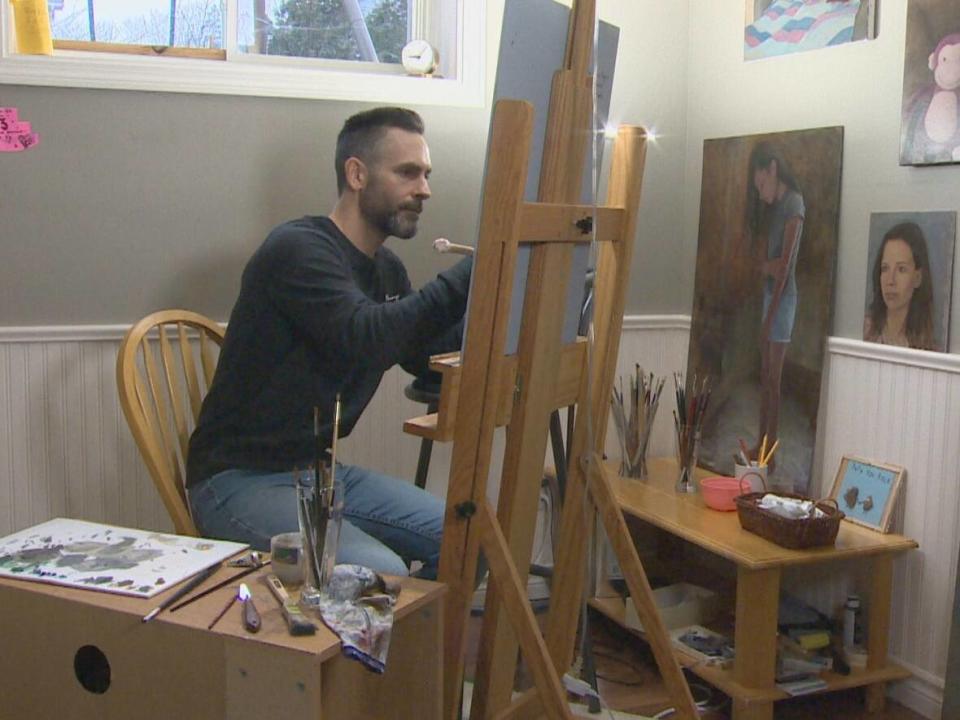
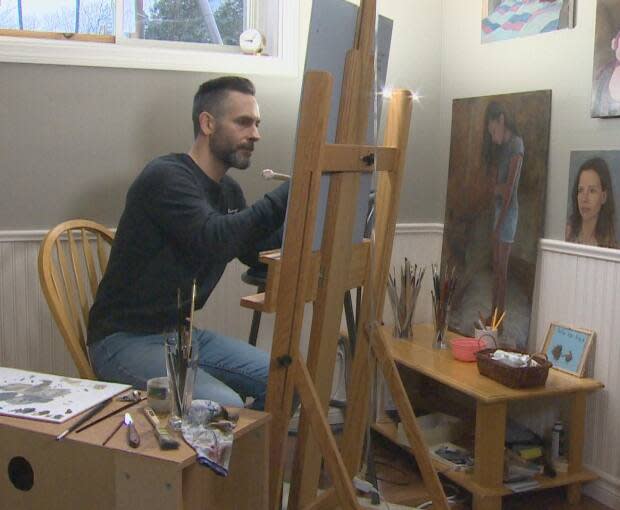
David Porter was walking in Fredericton when a man approached him with a $5 bill.
"He walked up to me and asked me if it's my $5," Porter said.
He said the man had picked it up, and using a cane, crossed the street to bring it to Porter.
Porter would later learn the man used the cane because a drunk driver had struck him.
He also appeared to be homeless.
"I was just so blown away. I'm so moved by that. That's where everything came together," Porter said in an interview.
"And I said I really, really have to do something."
Porter's tools for action are his brushes and canvases. The man became a part of Porter's new series of paintings — We Exist, We are Human — that will show some of the faces of a housing crisis.
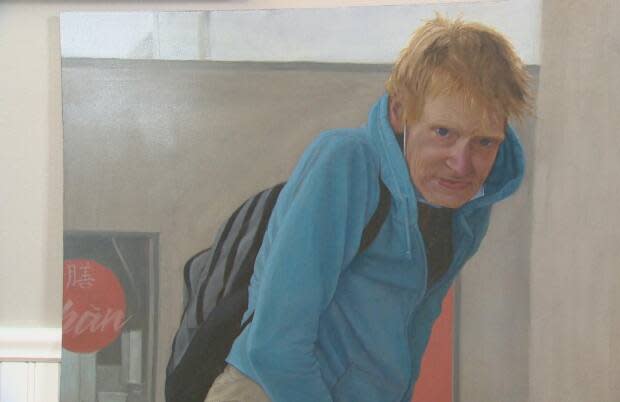
Porter's goal is to create a series of 13 paintings that can be shown in a gallery in the city.
"[I'm] trying to get people to see, you know, these are humans, they're people like us. It could be us tomorrow."
He has so far photographed and interviewed five people, and has painted three of them.
WATCH | Join painter David Porter in his home studio:
He hopes to see some of those he's connected with during his volunteer time at Fredericton Community Kitchens.
"We're approaching winter. It's the hardest time for the less fortunate in society," he said.
"So the community kitchen, the community shelters, they really, really need help. Whatever people could give."
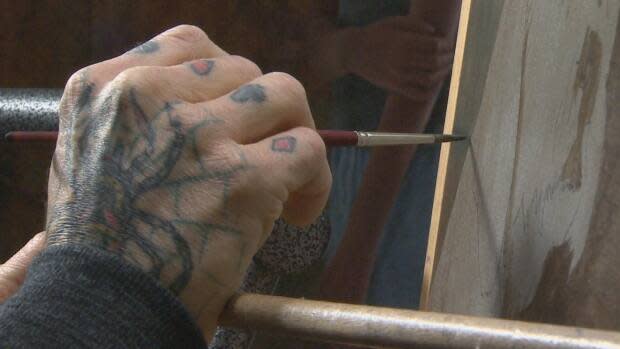
Creating connections
The paintings he's completed so far are striking. The subject seems to make eye contact with the viewer.
During his interviews, which Porter hopes to display with the paintings, subjects were asked to share the accomplishment they're most proud of.
"It's just to take every chance that I can to make a connection between the viewer and my models," he said. "To try to bring, I don't know, just a humanity to the situation."
He said asking people to share something positive helps create a common thread.
"Everybody's proud of something," he said.
One person's response to the question nearly brought him to tears.
The man told him that his greatest accomplishment in life was his daughter, who graduated with distinction from Saint Mary's University in Halifax. As a father of two girls himself, the response struck a chord with Porter.
"And then he finished the interview by saying, 'Appreciate what you have now, it can all disappear so quickly.' And to me that summarizes it perfectly."
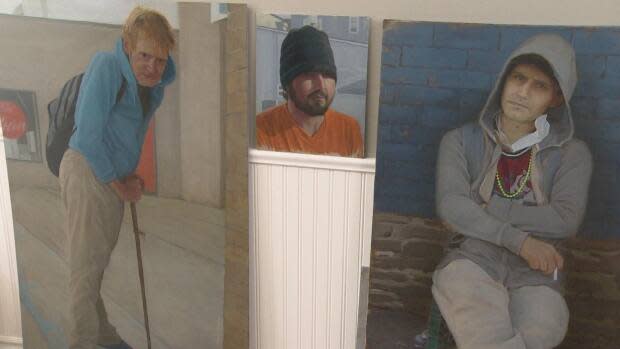
Helping others and following a passion
Professionally, Porter has worked as an accountant for the past 20 years. But outside of working hours, he's always been an artist.
As time went on, one started to overtake the other.
"Every year, I'm thinking more and more about the art and less and less about the accounting," he said.
Encouraged by his wife, Porter decided to take a year off starting in June to paint for eight hours a day.
When he first started painting, as a university student, he dabbled mostly in abstracts but he's always wanted to work in a realist style.
"But I could never do it on my own. And it just seemed like an impossible goal," he said, until he met Fredericton-based artist Glenn Priestley.
Priestley is a well-known artist whose work has been exhibited across the Canada and in parts of the U.S. and is held in many collections, including the Harvard Business School and Fredericton's Beaverbrook Art Gallery.
Porter said Priestley helped him paint in the style he had long desired. Porter continued to learn more from videos and books.
His goal for the year also includes a mission.
"I wanted to do something, at the same time, that mattered. That gave back to the community in a way," he said.
Porter said people often look at homelessness as an issue of "us and them." He decided to include the word "we" in his exhibit title to eliminate that divide.
"We're all people," he said.
"We got to help each other out here. There's nobody coming to ... save us from these financial situations, [we've got] to help each other out."

